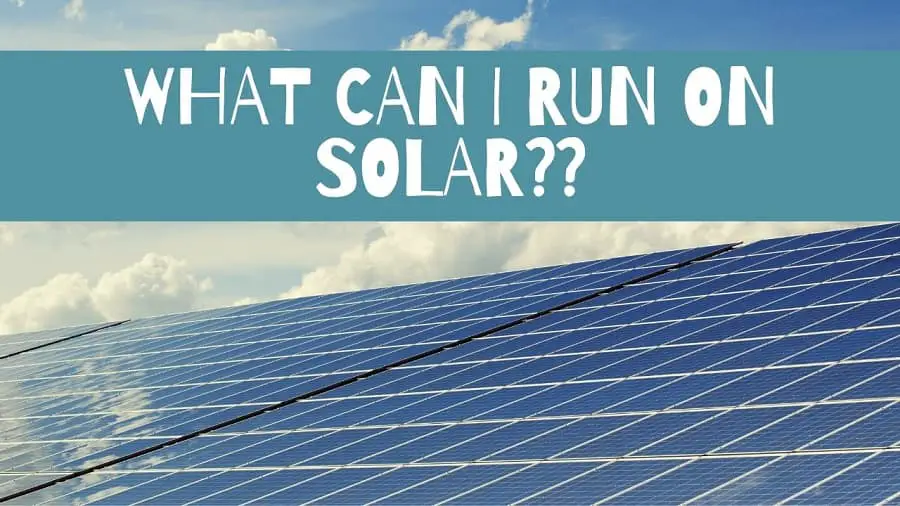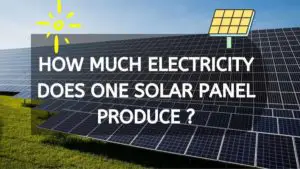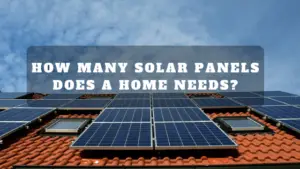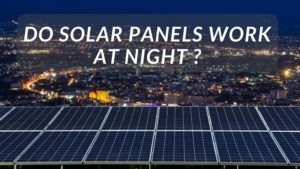Can I run my air conditioner, refrigerator, water pump on solar? Well if you want to know what all appliances you can run on solar then you have come the right place. In this article we will see what you can can run on solar panels, precisely what you can run (power) with 1 kW solar panels.
You can run any appliance like AC, washing machine, refrigerator, water pump for any number of hours on a solar on grid system (No battery system).
But for a solar off grid system (battery based system) you can power limited appliances for limited number of hours since you have limited storage.
You can surely use high power consuming appliances like AC on a solar off grid system but you will need quite a lot of battery storage which will escalate the project cost and maintenance cost.
What can I run on solar panels? The short answer is you can power everything on solar panels even your air conditioner, water pump, lift.
The system which you connect your solar panels with governs what appliances you can power with solar panels.
If you are absolutely new to solar then before we dig deep I would like to clarify one thing, you cannot power your appliances by directly connecting it to the solar panels. It just doesn’t work that way.
There are a whole lot of other devices apart from solar panels that needs to be connected to power your appliances from solar energy.
Depending on the area you like in and the way you want to power your house you can either install a solar off grid system or a solar on grid system.
What can I run on a solar off grid system?
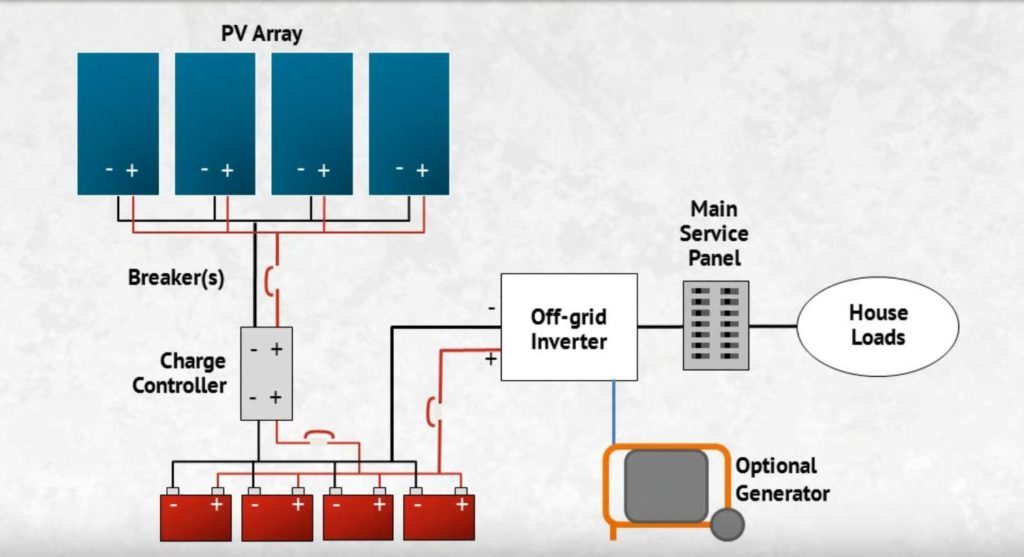
As the name suggest a solar off grid system is a solar system which is not connected to your utility grid (electricity provider).
In simple terms how off grid solar system works is, during the day (when sun is shining) your solar panels will produce electricity, you will consume whatever you need during the day and the surplus will be stored in a battery. At night when there is no sun, your solar panel won’t generate any electricity, you will use the stored electricity from the batteries to power your home appliances.
The advantages of solar off grid system is that you don’t need a grid connectivity to use this system meaning you can be in the most deserted place on earth where there is not even a single electricity pole but you can still produce electricity and light your house provided there is sun light.
The down side of solar off grid system to power your appliances is, you cannot power all your heavy appliances using this for long hours. Technically you can power all your appliances but you will need lot of batteries, to power high power consuming appliances like AC’s, water pump, which means more upfront cost and more maintenance cost.
You can read more on solar off grid system over here Everything About Solar Off Grid System.
What can I run on 1 kW solar off grid system?
Let’s understand basic calculations in solar, 1 kW of solar panels if oriented properly and receives good amount of sunlight without any shadow impact will generate 1 kWh of electricity in a hour.
Confused about watt, kilowatt, kWh read this article what is Watt, Kilowatt and Kilowatt hour (kWh)
Now if your house receives 6 sun hours then theoretically your solar panels will produces 6 kWh of electricity.
Let’s say you use 2 kWh of this electricity during the day when the solar panels were producing electricity and the rest 4 kWh is stored in the batteries for use at night.
Now how many appliances can 4 kWh of electricity power and for how long?
Let’s see how to calculate power consumption of any appliance.
If you use a 100 Watt LED TV for 10 hours it will consume 100 Watt X 10 hours which is 1000 Watt hour of electricity (1 kWh).
1 Kilowatt hour (kWh) = 1 Unit of electricity = 1000 Watt hour.
Below chart shows power consumption of some common household appliances.
| Appliances | Power Rating (Watt) |
| LED TV (50 inch) | 80 -120 |
| Fan | 60 |
| 1 Ton Air Conditioner | 800 -1000 |
| 300 ltr Refrigerator | 300 |
Now if you use your 1 ton air conditioner for 4 hours you have used your 4 kWh of electricity stored in the battery. (Power consumption of AC’s is a bit complicated than that but for simplicity I have used the above figure. You can check this article to know more on AC power consumption).
But there is a problem over here, most batteries that are available today have 30 – 40 % discharge capacity meaning you can only discharge them only up to 30 – 40%. if you completely discharge them then it will be difficult to get them charged again solely on solar and also this hampers battery life drastically.
Hence your 4 kWh of electricity shrunk down to 2 kWh of electricity meaning you can power your 1 ton air conditioner for only 2 hours.
Hence if you power your led lights, your TV and your AC all at once it will barely work for 1 hour with 2 kWh of electricity.
So the solution for this problem is to either increase the number of batteries and hence increase your power storage or make a choice on which appliances you will use on your batteries. If you install a 5 kW solar and store 10 kWh of electricity then it will be sufficient to power most of your house appliances for one night, but this kind of solar setup is expensive.
Nowadays you can find solar-powered appliances like Solar panels for cameras, these provide an eco-friendly and cost-effective solution for security and surveillance systems.
The solution for complete freedom where you can power any number of appliances for any number of hours is a solar on grid system.
What can I run on a solar on grid system?
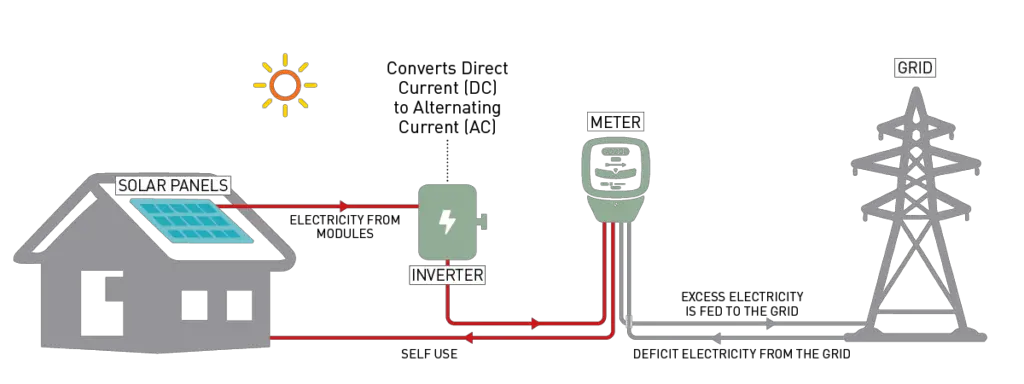
As the name suggests solar on grid system is a grid tied system where you are installing solar system parallel to your existing electricity grid, so after going solar you will be having two sources of electricity one is your electricity provider and second is solar.
When the sun is shining during the day time you will use electricity from your solar panels and the surplus will be fed in the electricity grid (export), but when the sun is not shining (at night and during monsoon) you will pull electricity from the grid (import) the same way you do before going solar to run your appliances. This billing mechanism is known as solar net metering mechanism.
More on solar on grid system over here Everything About Solar On Grid System
What can I run on 1 kW solar on grid system?
If you skipped the above description on how solar on grid system works then please read it first.
The beauty about solar on grid system is that you can use any number of appliance for any number of hours even on a small system of 1 kW. But you will get charged for the extra units you have used.
Let’s understand this by an example.
Case 1 – If Export Is More Than Import:
Let’s say its summer time your solar is running at its peak and the export for this month is 1000 kWh and import is 800 kWh.
Then for this month your billing will be done as follows.
- Export = 1000 kWh
- Import = 800 kWh.
- Net units = 800 – 1000 = – 200 kWh
- Banked units = 200 kWh.
Since during this month number of units you have exported is more than number of units you have imported you will only get fixed charge as your electricity bill and the excess 200 kWh will be credited for next month.
Fixed charge is the amount you have to pay even if you don’t use any electricity during that month. It is charge for using the meter and grid infrastructure.
Case 2 – If Import Is More Than Export:
Let’s say its monsoon and your solar is under performing, the export for this month is 400 kWh and import is 1000 kWh.
Then for this month your billing will be done as follows.
- Export = 400 kWh
- Import = 1000 kWh.
- Net units = 1000 – 400 = 600 kWh
- Banked units = 0 kWh.
Since during this month you have imported more units than you have exported hence you will be charged for the Net 600 kWh which you have used.
Hence the electricity bill for this month would be fixed charge + energy charge for 600 kWh.
If we assume tariff of Rs 10 and fixed charges to be Rs 300 then your approximate bill for this month will be.
Fixed charge = Rs 300
Energy charge = 600 X 10 – Rs 6,000
Total bill = Rs 6,300
Hence the electricity bill for the month would be around Rs 6,300.
So you clearly see that solar on grid system is more like a system which saves you electricity bill by working together with your utility grid.
It gives you the option to run all your appliances on solar panels for any number of hours.
Conclusion on What can i run on solar?
So to conclude I will say using 1 kW of solar panels you can run high power consuming appliances for long hours if you have installed a solar on grid system.
But if you have installed a solar off grid system then you will be able to power high power consuming appliances for less time unless you increase the size of your solar system and the battery storage capacity.


